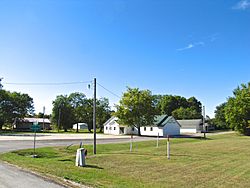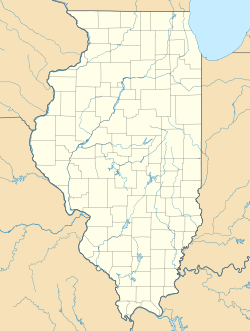Wetaug, Illinois facts for kids
Quick facts for kids
Wetaug, Illinois
|
|
|---|---|

Wetaug
|
|
| Country | United States |
| State | Illinois |
| County | Pulaski |
| Elevation | 358 ft (109 m) |
| Time zone | UTC-6 (Central (CST)) |
| • Summer (DST) | UTC-5 (CDT) |
| Area code(s) | 618 |
| GNIS feature ID | 420979 |
Wetaug is a small, quiet place in the United States. It is known as an unincorporated community. This means it's a group of homes and businesses that isn't officially a city or town with its own local government. Instead, it's part of a larger county.
Wetaug is located in Pulaski County, in the state of Illinois. It sits along Old U.S. Highway 51. You can find it south of a place called Dongola and north of Ullin.
Discover Wetaug
Wetaug might be small, but it has an interesting story. It's a great example of how communities grew around important transportation routes. Learning about places like Wetaug helps us understand the history of travel and settlement in America.
Where is Wetaug?
Wetaug is nestled in the southern part of Illinois. This area is known for its beautiful natural scenery and rich history. The highway it sits on, Old U.S. Highway 51, was once a very important road for people traveling through the state.
A Glimpse into History
Wetaug began in the middle of the 1850s. It started as a stop along the Illinois Central Railroad. Railroads were super important back then! They helped people travel and moved goods across the country. A stop like Wetaug meant trains could refuel or passengers could get on and off.
How Wetaug Got Its Name
The name "Wetaug" has a couple of interesting stories behind it. The most likely reason is that it was named after a place called Weatogue, Connecticut. Many towns in new areas were named after older places where settlers came from.
However, there's also a local legend. For a long time, people in the area believed Wetaug was named after a Cherokee chief. The story said this chief died nearby during the Trail of Tears march in the late 1830s. The Trail of Tears was a sad time when many Native American people were forced to move from their homes. While this folklore is touching, the connection to Weatogue, Connecticut, is generally accepted as the true origin of the name.
 | Roy Wilkins |
 | John Lewis |
 | Linda Carol Brown |



